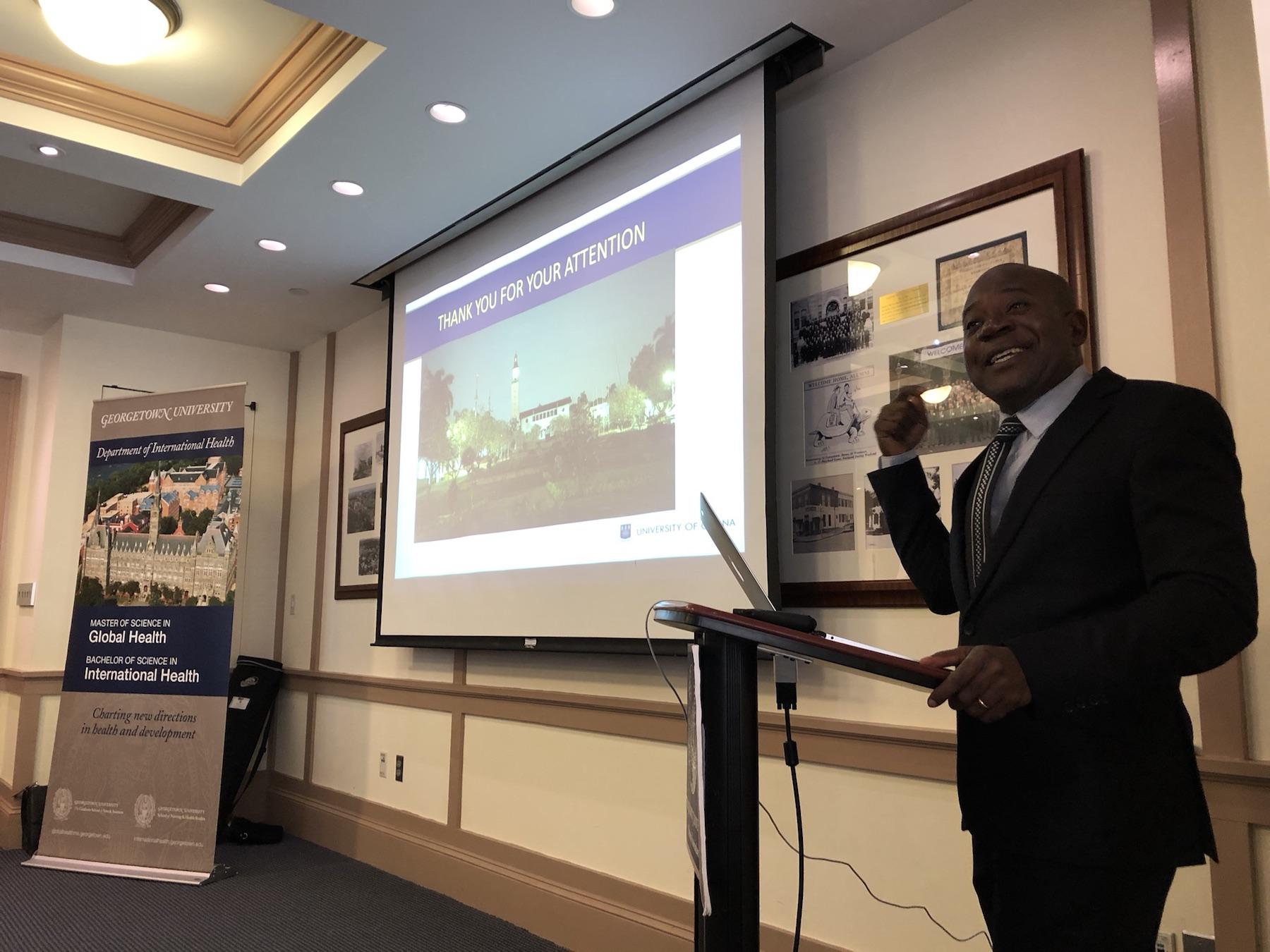Expert Addresses Ghana & Urban System Demographic Trends

Posted in News Story
Last month, the Department of International Health welcomed Samuel Nii Ardey Codjoe, PhD, to speak on emerging urban system demographic trends in Ghana. Professor Codjoe serves as Director of the Regional Institute for Population Studies (RIPS) at the University of Ghana, Legon.
Professor Codjoe’s research, based largely on Ghanaian national censi since independence, shows that the country is rapidly urbanizing. Most attention is paid to municipal and suburban growth of Ghana’s two largest cities: Accra and Kumasi. However, Professor Codjoe highlighted the overall increase in population and the rise of medium-sized cities. In describing this increase, he addressed the need to review what population size constitutes “urban.”
Professor Codjoe outlined the Ghanaian government’s national urban policy (NUP). The NUP aims to encourage population redistribution by tempering the primacy of the capital region and enabling advantageous economic conditions for regional and district capitals. Some political groups even advocate for moving the capital city to alleviate crowding in Accra.
Climate change also impacts urbanization trends. Professor Codjoe described the demographic effects of erosion and seawater flooding, which has forced some Ghanaian coastal communities to relocate to the densely populated capital region. Relocation carries economic and health impacts for migrants and prior residents alike.
Codjoe also addressed slums in Accra and Kumasi, including government efforts to combat and deter violence and organized crime, pandemic preparedness, and ongoing reproductive and occupational health challenges. The slums continue to be a major national political issue.
Urbanization trends will bring opportunity for economic growth, but also widen income gaps and increase the potential for conflict. Codjoe looks forward to the next national census, which will provide data to examine further demographic trends and appraise the effectiveness of the government’s NUP.
This lecture was part of an urban health speakers series sponsored by the Georgetown University Urban Health Collaborative (UHC). Launched in 2017, the UHC aims to champion urban health research & development in cities around the world and the Washington, DC area. The Collaborative is housed in the Department of International Health (School of Nursing & Health Studies).

